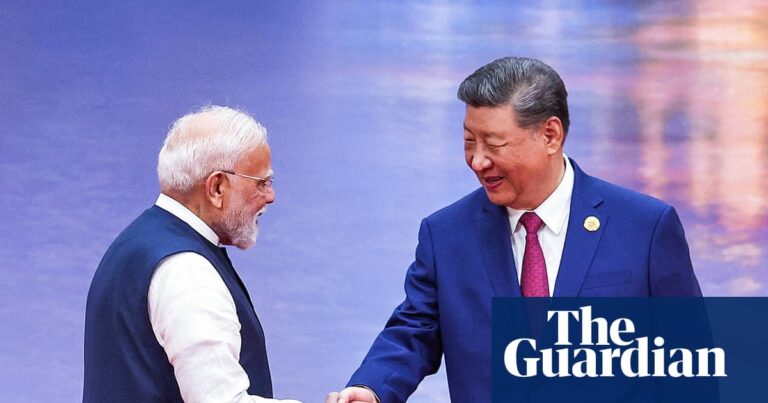The Gathering of Global Leaders: A Shift in Alliances
Recently, a notable meeting took place in Tianjin, China, where three of the most influential non-Western leaders—Vladimir Putin, Xi Jinping, and Narendra Modi—convened. Their camaraderie, marked by laughter and warm gestures, conveys a significant message to Western powers, particularly in the wake of recent trade tensions.
A Defiant Message to the West
Observers see the leaders’ overt displays of friendship as a strategic counter to Western criticism, especially from U.S. President Donald Trump. Just days before, Trump imposed hefty import tariffs on India, magnifying tensions between the two nations. Experts believe this summit was a deliberate show of solidarity to counteract perceived American dominance.
Modi’s First Visit to China in Years
This gathering marked Indian Prime Minister Modi’s first visit to China in seven years. Unlike previous encounters laden with hostility, this time Modi received an exceptionally warm welcome from Chinese officials. Such a shift indicates an evolving relationship, focused on diplomacy rather than conflict.
Reactions from the U.S. Administration
The meeting was closely monitored from the Oval Office. Following the summit, Trump criticized India’s trade stance, branding it a “one-sided disaster.” His trade adviser, Peter Navarro, expressed concerns over Modi’s alignment with Xi and Putin, highlighting the growing frustration in Washington.
The Changing Dynamics between India and China
Just a year ago, a friendly meeting between Modi and Xi would have seemed unprecedented, given the military standoff following border incursions by China in 2020. Rising anti-China sentiment in India prompted significant actions, including bans on numerous Chinese apps and restrictions on investments. The geopolitical landscape has shifted dramatically since then.
The Role of the U.S. in Indo-China Relations
The U.S., historically viewed as a steadfast ally, is now perceived with skepticism in New Delhi. The imposition of tariffs is seen as a retaliatory measure against India’s refusal to acknowledge Trump’s contributions to regional security, particularly concerning India-Pakistan tensions. This has prompted India to reevaluate its diplomatic strategy, especially towards China.
Future of India-China Relations
Despite ongoing tensions, analysts believe that India and China could potentially restore their relationship to pre-2020 levels. Modi’s recent visit led to discussions aimed at normalizing ties, focusing on stabilizing borders and enhancing economic collaboration. Notably, both leaders have recognized the importance of mutual support for their economic interests.
Challenges Ahead in the India-China Dynamic
Though opportunities for cooperation exist, substantial challenges remain, particularly regarding trust and ongoing support of Pakistan by China. The complex nature of this relationship illustrates the difficulties in achieving lasting peace. As experts warn, it would be premature to consider this summit the start of a grand reconciliation; the underlying tensions continue to pose significant hurdles.
